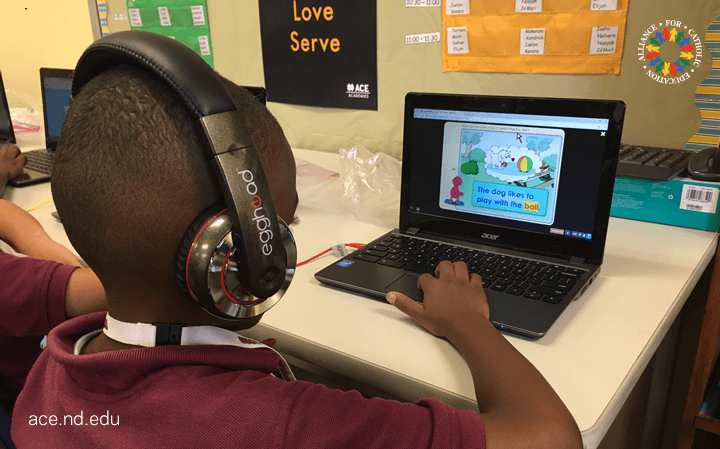I'd like to start this post with a direct quote from a teacher at a professional development session I led recently: "Elizabeth LOVES data." To be honest, she's not wrong! I've written before about the importance of data in blended-learning classrooms and how data from adaptive software programs can enable teachers to deliver targeted instruction when and where students need it most. It's safe to say that I am a HUGE fan of student performance data, but I also recognize its shortcomings.
The term "data-driven" has become very popular in recent years. Education gurus tout the benefits of using assessment data, rather than instinct or what you believe to be true, to determine your next instructional move. This concept looks different across specific situations, but a few examples include using data from a formative assessment to group students, designing interventions based on gaps in skills revealed by diagnostic assessments, or selecting a school-wide focus for improvement according to the areas of weakness revealed by the state assessment.
So the concept of data-driven instruction sounds pretty great, right? There is enormous value in examining data from an unbiased perspective and learning from it. The problem arises, though, when assessment data becomes the only factor a school leader or teacher uses to determine his or her next move rather than one of many.
Fr. Nate and I recently had the great joy of teaching a class on blended learning for a select group of outstanding ACE Teaching Fellows for our third summer in a row. Every summer, at least a few of the teachers enter the class with a somewhat negative view towards data about student performance as they disagree with the ways in which their schools deify it. Many feel like a single test has the last word in their schools, or that their leaders only see numbers without digging deeper or seeking to know more.
We take a more holistic approach to using data in our schools that we like to call "data-informed instruction." Rather than making decisions or assigning values based only on numbers, we encourage teachers and school leaders to use assessment data as one key source of information in their instructional decisions. There are countless other sources of information that should play a role in your decisions too, though, such as a student's learning preferences, whether or not the student had breakfast, how the student is getting along with his or her friends, the mastery the student is demonstrating in his or her classwork, and on and on.
Education is both an art and a science, and we cannot assume that sophisticated assessments and detailed performance reports have all of the answers. Instead, we ask teachers to use the data available to them in combination with all the other information they know about the students to make their own instructional decisions. This philosophy recognizes the importance of data from a variety of sources and all the ways in which it can help teachers better serve students, but it also recognizes the importance of the teacher as the decision-maker and the student as a whole person.
In the wise words of Betsy Okello, the newest member of the Notre Dame ACE Academies Teaching and Learning team, "Students are not a score or a letter or a number." We believe that each student is a child of God, wonderfully made and absolutely unique. Assessment data can offer very valuable insights into how much a child is or is not learning, but data never tells the whole story.
So, should data really drive your instruction? We would argue that it should not. Rather, data from a variety of sources - including, but not limited to, assessments and online learning programs - and what teachers know about their students to inform instructional decisions that will truly serve students.
 Alliance for Catholic Education
Alliance for Catholic Education
